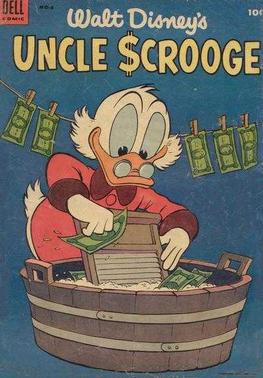Table of Contents
Develop-man
Develop-man
Ryan Schram
Mills 169 (A26)
ryan.schram@sydney.edu.au
August 16, 2017
Available at http://anthro.rschram.org/1002/3.2
What happens when a gift system encounters a market economy?
When societies which are largely integrated through gifts encounter the market principle, many things can happen:
- People can strive to segregate money in a separate sphere.
- Auhelawa people sell garden food, but believe that buying yam seeds is shameful.
- Wamira people prohibit the use of metal tools and wearing manufactured clothing in taro gardens (Kahn 1986, xi).
- People can also convert money and bought items into a new kind of gift.
- Ongka (of Kawelka) includes money, a truck and motorbikes - bought with the proceeds from his followers' sale of coffee - in his moka to Perewa (Nairn 1976).
Ongka redux
So now we can see Ongka in a new light. He's not a living fossil. He straddles two worlds. He makes money from selling coffee, and he keeps a cycle of moka going too.
- Has a bank account
- Grows coffee
- He has also said that cash-cropping and moka should coexist (Strathern and Stewart 2004, 133).
Ongka and other big men draw on money earned in markets to make bigger gifts. Money has led to the efflorescence of the moka system.
Uncle Scrooge in the Land of Tralla La
Talk pigeon?
Papua New Guinea Pidgin (Tok Pisin) is sometimes called Neo-Melanesian English.
pait (v.): fight, strum.
Man i paitim gita. The man strums the guitar.
stap (v.): stop, be.
Ol i stap long Mosbi. They are in Port Moresby.
rot (n.): road, road, way, method, plan, strategy.
Husat save rot? Who knows the way?
Develop-man
“The first commercial impulse of the local people is not to become just like [the West], but more like themselves” (Sahlins 1992, 13).
As a Kewa leader once told an anthropologist (paraphrase): “You know what we mean by 'development?': building a hauslain [a village community], a men's house, and killing pigs. This we have done” (quoted in Sahlins 1992, 14).
“Developman: the enrichment of their own ideas of what mankind is all about” (Sahlins, 1992, 14).
When a gift system meets a commodity system
When a society organized on the basis of gifts encounters a globalizing capitalist market, many different outcomes are possible. In the next lecture and next week, we will look at other possible responses:
- Separation, tension, and conflict
- Efflorescence
- Transformation
The two traps
- The trap of nostalgia: Cultures are dying.
- The trap of modernism: Everything is getting better.
Positive thinking
Positive thinking has deep roots in Western culture, going back to the Enlightenment:
- There is a reason for all of this.
- Everything is getting better.
Yet there has also been a critical tradition in Western culture which has been skeptical of this.
Voltaire's Candide and Doctor Pangloss
Doctor Pangloss believes:
- There is no effect without a cause, and
- All is for the best in, this, the best of all possible worlds.
For Doctor Pangloss, there is no other way that things could turn out
- “Legs are visibly designed for stockings–and we have stockings.”
- “Pigs were made to be eaten–therefore we eat pork…”
What's next
- We look more closely at buying and selling
- Capitalist societies make buying and selling possible
- Karl Marx provides a social theory of capitalism and its rules
- Capitalism is organized into classes, and people of each class play distinct social roles
- Capitalism is contradictory. It alienates value from workers to benefit owners, but it also needs people to belong to a social whole based on interdependence and reciprocity.
If you would like to learn more about Marxism, visit: http://marxists.org/ for online editions of the Manifesto, Capital, and other key writings of Marx and Engels.
References
Andrae, Thomas. 2013. “Barks, Carl.” In Icons of the American Comic Book: From Captain America to Wonder Woman, volume 1, Duncan, Randy, and Matthew J. Smith, eds. Santa Barbara, Calif.: ABC-CLIO.
Kahn, Miriam. 1993 [1986]. Always Hungry, Never Greedy: Food and the Expression of Gender in a Melanesian Society. Long Grove, Ill.: Waveland Press.
Nairn, Charlie. 1976. Ongka’s Big Moka. Granada Television. http://www.der.org/films/ongkas-big-moka.html.
Sahlins, Marshall. 1992. “The Economics of Develop-Man in the Pacific.” Res 21: 13–25.
Strathern, Andrew, and Pamela Stewart. 2004. Empowering the Past, Confronting the Future: The Duna People of Papua New Guinea. Basingstoke, Eng.: Palgrave Macmillan.
Voltaire. 2006 [1759]. Candide. Project Gutenberg. http://www.gutenberg.org/files/19942/19942-h/19942-h.htm. .
